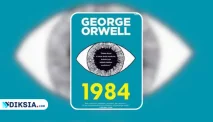A developmental editor can suggest new titles and headlines, develop stories and content ideas, and help you refine your vision and voice as an author.
A developmental editor is usually involved in the early stages of writing, before you have a complete draft. They can work with you from the outline stage or from a partial manuscript. They can also review your completed draft and give you feedback on how to improve it. A developmental editor can help you with:
- Clarifying your main idea and purpose
- Identifying your target audience and their expectations
- Organizing your chapters and sections
- Developing your plot, characters, setting, and conflict
- Enhancing your themes, tone, and style
- Strengthening your argument and evidence in non-fiction books
- Eliminating unnecessary or irrelevant content
- Adding missing or needed content
- Resolving any inconsistencies or contradictions
A developmental editor does not focus on grammar, spelling, punctuation, or formatting. They focus on the big picture and the overall quality of your book.
Copy Editor
A copy editor works with the language and mechanics of your book. They look for errors, inconsistencies, and weaknesses in grammar, spelling, punctuation, syntax, word choice, and sentence structure. They also check for factual accuracy, clarity, coherence, flow, and readability. A copy editor can suggest changes to improve the expression, precision, and elegance of your writing.
A copy editor is usually involved in the later stages of writing, after you have a complete draft that has been revised for content and structure. They can work with you from a single manuscript or from multiple versions that have been edited by other types of editors. A copy editor can help you with:
- Correcting any grammatical or typographical errors
- Ensuring consistency in spelling, capitalization, hyphenation, numbers, etc.
- Improving word choice and avoiding repetition or ambiguity
- Simplifying complex or convoluted sentences
- Rearranging or combining sentences for better flow
- Adding or deleting transitions for better coherence
- Checking for factual accuracy and citing sources if needed
- Applying a specific style guide or house style if required
- Formatting your manuscript according to industry standards
A copy editor does not focus on content, structure, or creativity. They focus on the details and the accuracy of your writing.
Proofreader
A proofreader works with the final version of your book before it goes to print or publication. They look for any remaining errors or inconsistencies that may have been missed by other types of editors or introduced during the formatting process. They also check for layout issues such as page numbers, headings, margins, spacing, alignment, etc. A proofreader can ensure that your book is error-free and ready for publication.






